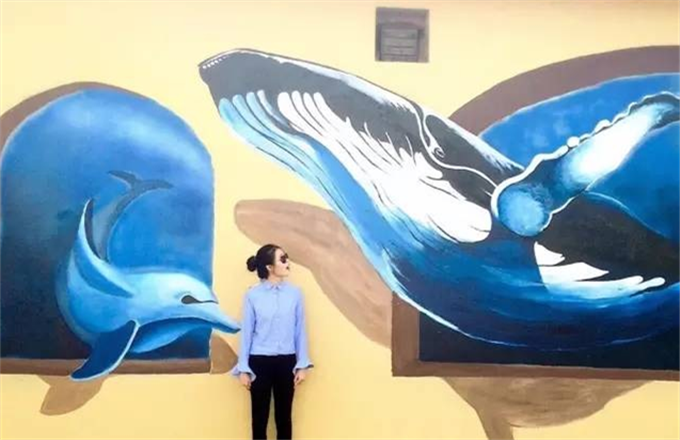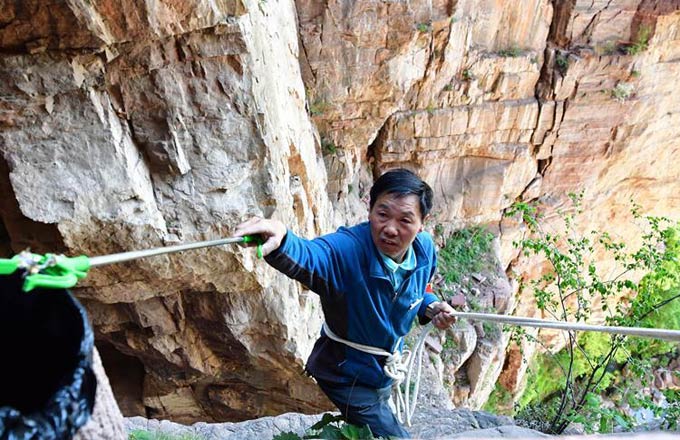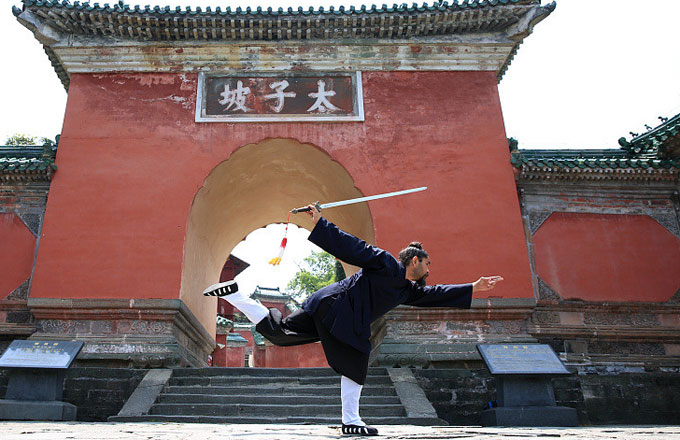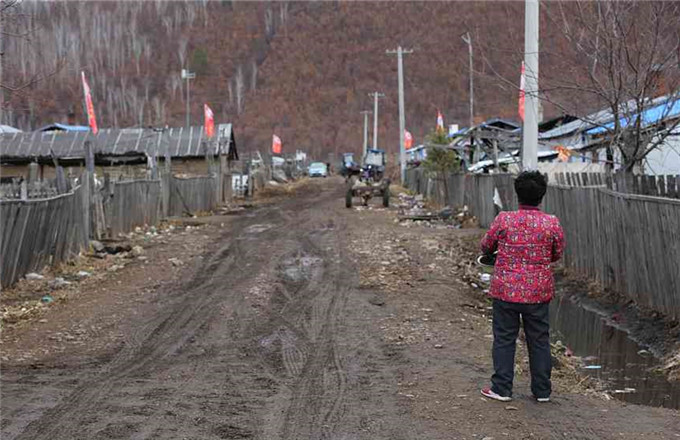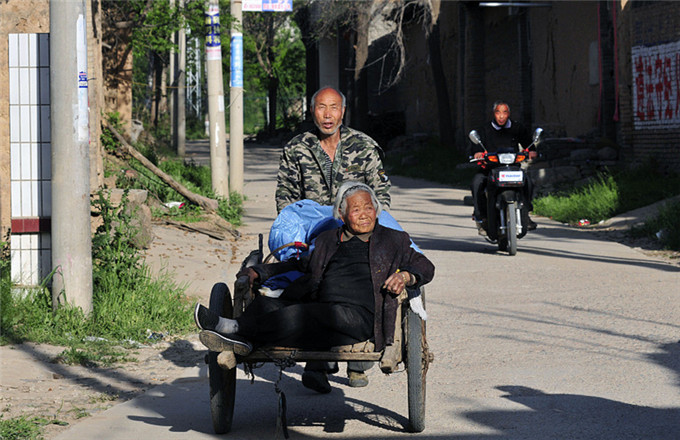

|
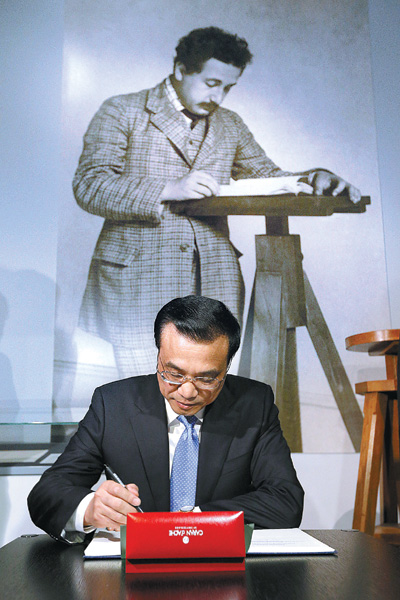 |
|
Premier Li Keqiang signs the guestbook at the Einstein Museum on Saturday in Bern. Behind him is a picture of German-born physicist Albert Einstein. Peter Klaunzer / AFP |
Premier Li Keqiang visited the Einstein Museum in Bern on Saturday morning and cheerfully mingled with some enthusiastic Swiss youths. He told them that innovation was important, as was hard work and regular exchanges between East and West.
Albert Einstein (1879-1955) was living in Bern when his theory of relativity turned the perceptions of space and time upside down.
As a part of the Bernisches Historisches Museum, the Einstein Museum offers an account of the life of the physicist.
Jakob Messerli, director of the museum, introduced Einstein's life and work in Bern, and specifically mentioned Einstein's links to China as he showed Li around.
"Einstein's thoughts originated in Bern, but his achievements belong to all mankind. He is the pride of Bern, also the pride of mankind," Li responded.
"His scientific achievements changed the world," Li said, quoting Einstein's famous "Genius is 1 percent talent and 99 percent hard work".
Einstein was awarded the Nobel Prize in physics 1921, but he was visiting China in 1922 when he was to have received his award in Sweden, Messerli said.
"Einstein visited Hong Kong and Shanghai at that time. Both the German and Swiss ambassadors in Sweden competed to accept the prize for him as he had dual nationality then," Messerli added.
China's Terracotta Warriors are also on show at the museum.
"It's a good idea to combine science with culture, connecting East with West, and going beyond time," Li commented. He told some Swiss youths at the museum that he hoped more young people from the country would become envoys of China-Swiss friendship in future.
He answered their questions during the visit and for those who did not understand Chinese, the premier spoke to them in fluent English.
"Wealth created by innovation is immeasurable," he said, answering a question on China's policy on innovation, and how to invest in China.
"We should protect intellectual property, then people who are committed to innovation can be rewarded," Li said, adding that companies must attach importance to technology cooperation, favor innovation and make products suitable for local markets.
"The Chinese government has launched a series of policies to promote scientific and technical innovation," Li said.
When a Swiss student asked if he had enough time to read books, he said he takes time to read no matter how busy he is.
"If you don't read and study, it will be difficult to spark new thoughts, and also difficult to understand the process of human civilization," Li added.
"Premier Li is very intelligent. He answered my question calmly, giving me a much clearer understanding of the Chinese market." Markus Hacki, 32, told China Daily.
Julia Escher, a Swiss woman who learned Chinese and lived in Zhejiang province for a year, was equally impressed.
"It's a great honor for me to meet and talk to Premier Li. His enthusiasm makes a good impression."
